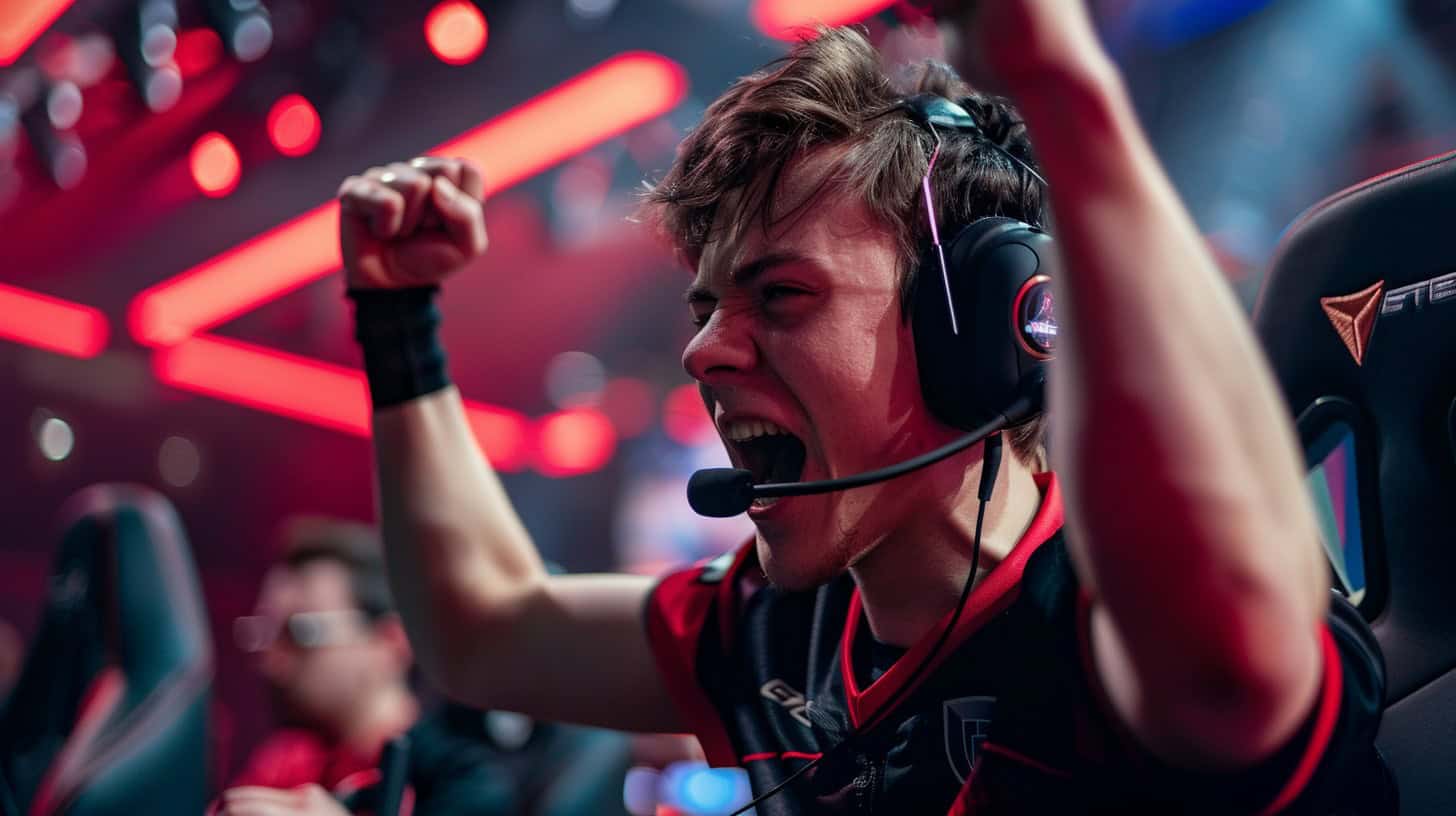Many people wonder if esports are a real sport. The first video game competition happened in 1972. This article shows why esports fit the sports category perfectly.
Read on, and see for yourself.
Key Takeaways
Esports needs skill and training, like other sports. Players work on quick thinking and teamwork. They also train for hours, which can be hard on the body.
Many countries view esports as a real sport because it fits the basic definition of sport. It has organized competitions, rules, and requires both physical and mental ability.
Schools offer big scholarships for esports, just like traditional sports. This helps gamers pay for college while playing their favorite games.
Esports makes a lot of money from ads to game gear sales. Pro gamers can earn millions from tournaments and sponsorships.
Recognizing esports as a sport helps fight stereotypes about gamers. It shows they are serious athletes who train hard to win.
Table of Contents
The Essential Nature of Esports
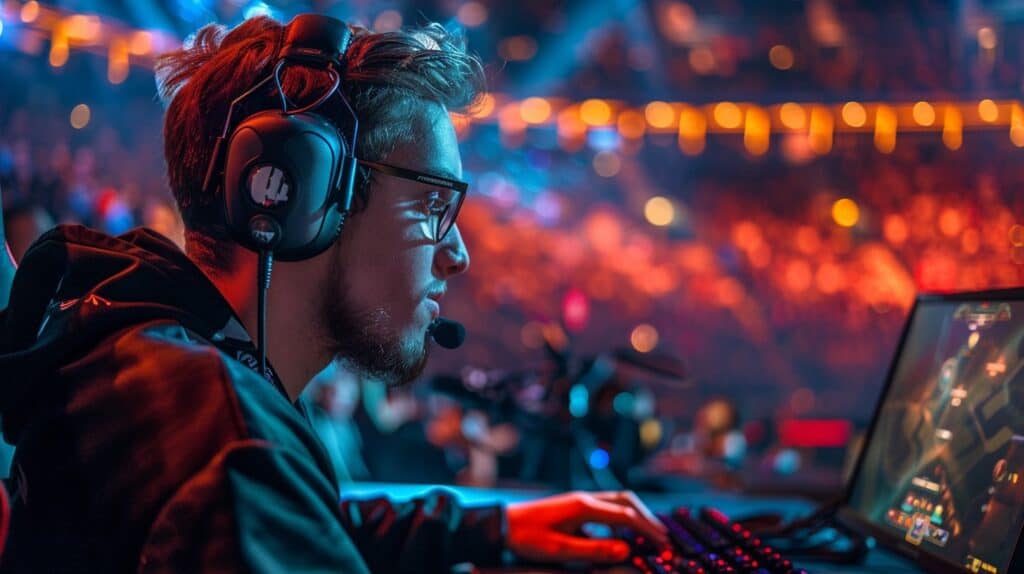
eSports thrives on competition, skill, and teamwork. Players battle in leagues and tournaments, pushing their mental fitness to the limit. It’s more than a hobby; it requires intense practice, strategy planning, and quick decision-making.
According to the eSports experts at GGBet, playing games like League of Legends or Valorant is akin to chess on digital steroids—each move calculated with precision under pressure.
This world combines gaming skills with physical demands that many overlook. Professional gamers endure hours of training, which can be as taxing as traditional sports practice. They work on hand-eye coordination, reaction times, and maintaining concentration over extended periods—all essential for victory in high-stakes matches.
This effort shows why eSports deserves recognition alongside baseball or golf; both worlds demand excellence from their athletes for success.
Esports’ Claim to Sport Status
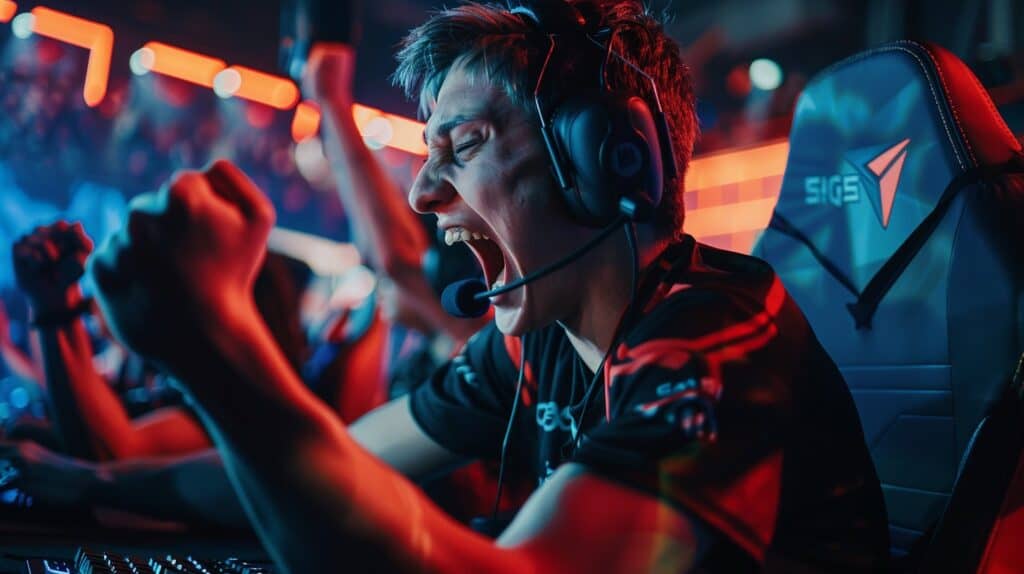
Esports takes skill and hard work, just like basketball or soccer. It’s more than playing games; players must think fast and make smart choices, much like a quarterback deciding on the next play.
Defining ‘Sport’
A sport is any activity where players do physical or mental tasks to compete. The NCAA says a sport needs organized competition, rules, and ways for people to win. It should include training and need skill.
Esports fits this well because players train hard, follow strict rules, and show skill in battles.
Countries like South Korea, the US, and Germany see esports as real sports. They know that gamers work hard with their minds and sometimes bodies too during competitions. This shows esports deserves its spot among traditional sports like baseball or soccer.
Mental and Physical Demands of Esports
According to the esports experts at Geek Extreme, Esports players go through intense training, much like athletes in traditional sports. They can make up to 400 movements per minute on the keyboard and mouse. This requires quick-thinking and fast reactions.
Their heart rates often reach 180 beats per minute during competitions, showing how stressful games can be.
Playing video games at this level isn’t just sitting around. It demands physical stamina to handle hours of play and mental sharpness to make split-second decisions. I’ve felt the pressure myself during long gaming sessions – your body tenses, your concentration peaks, and every move matters.
The intensity of esports matches that of any physical sport.
Next, let’s compare esports with traditional sports…
Esports Versus Traditional Sports
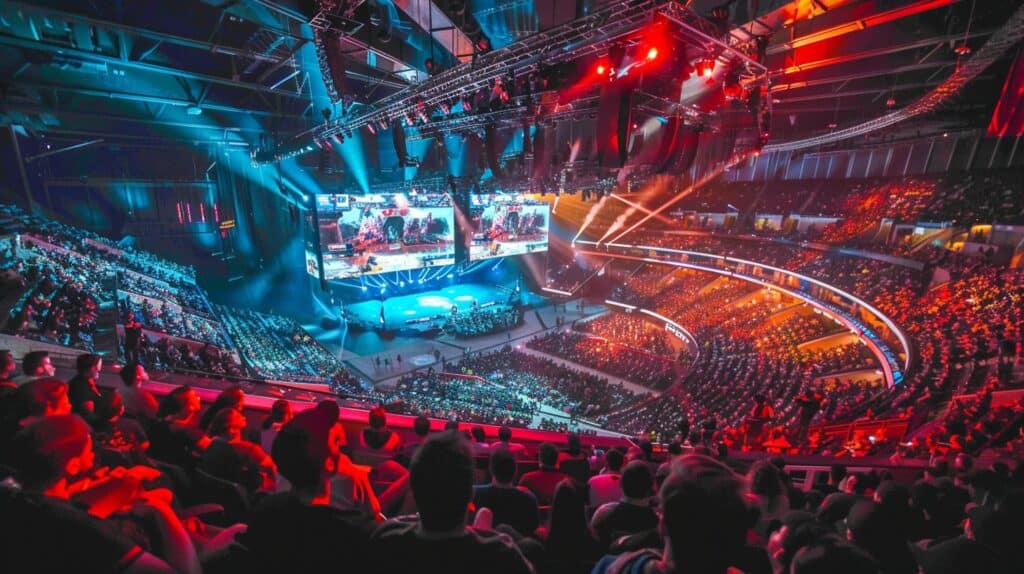
Esports and traditional sports share a competitive heart–both push players to their limits. Just like pitchers in baseball work on their throw, esports athletes train hard on games.
Challenging the Perceived Differences
Many people think esports and traditional sports are worlds apart. They believe physical activity sets them apart. Yet, mental toughness, strategic thinking, and team play bridge this gap.
In esports, players show these skills just like in football or basketball.
RMU considers esports a sport and gives scholarships worth half a million dollars to its teams. This move shows the world that video game competitions demand respect similar to intercollegiate athletics.
Both fields require dedication, practice, and skill development from their participants.
Shared Values Between Esports and Traditional Sports
Esports and traditional sports share key values such as teamwork, discipline, and competition. Players in both fields spend hours practicing to improve skills and strategies. This dedication shows in colleges like RMU, where esports athletes train hard, similar to baseball or football players.
Both types of sports also focus on mental toughness. A gamer managing stress during a tight match uses the same psychological strength as a basketball player does in a tie game.
Success in these arenas comes down to more than just talent—it’s about hard work, learning from failures, and pushing limits. Collegiate Starleague creates opportunities for college gamers like the NCAA does for athletes.
These platforms prove that whether it’s on the digital battlefield or physical court, the drive to win unites all competitors.
Economic Impact of Esports
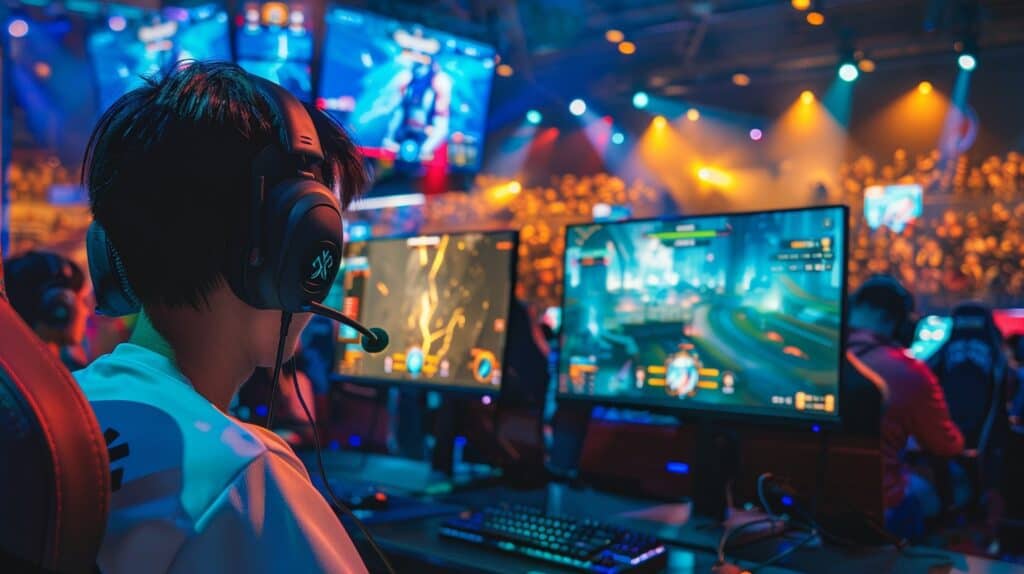
Esports brings in big bucks, from ads to game gear sales. Players make serious cash too, just like stars in football or basketball.
Revenue Streams for Esports Organizations
Esports organizations make money from many sources. This keeps the industry growing fast.
- Sponsorships and Ads – Brands pay to get their logos and ads in front of fans. This is a big chunk of income for teams.
- Merchandise Sales – Fans buy clothes, hats, and other items with team logos.
- Streaming Rights – Platforms like Twitch.tv pay for the right to show game competitions.
- Prize Money – Teams win cash when they do well in tournaments.
- Content Creation – YouTube channels and social media posts bring in ad revenue and partnerships.
- Ticket Sales – People pay to watch competitions live, just like traditional sports events.
- Licensing Fees – Video game companies pay esports teams to use their images or create team-based game content.
Each of these streams helps esports groups stay strong and grow bigger every year.
Esports Professionals’ Earnings
Esports professionals make serious money. This fact surprises many. Here’s how:
- Winning big tournaments pays out millions. Teams split huge prizes, sometimes reaching up to $30 million for events like The International in Dota 2.
- Personal sponsorships bring extra cash. Players endorse gaming gear, energy drinks, and apparel, earning them a tidy sum beyond just playing.
- Streaming on platforms like Twitch adds to their income. Top streamers and competitive gamers collect revenue from ads, subscriptions, and donations.
- Salaries are now standard for many esports athletes within prominent teams or organizations, often starting at tens of thousands of dollars annually, with top players making six figures.
- Coaching and analysis offer additional income streams post-competition career. Many former pro-players turn to coaching upcoming stars or analyzing games during live broadcasts.
- Content creation is another lucrative avenue — creating videos or blogs about gameplay strategies or game reviews further boosts their earnings.
Each point underscores the financial viability of pursuing esports as a career path, challenging the traditional view of “playing video games” as merely a hobby.
Esports Betting: A Testament to Its Sporting Nature
Just as fans bet on outcomes in traditional sports, esports enthusiasts do the same. eSports betting platforms like GGBet show this activity is big business, mirroring other sports’ betting scenes.
This fact points to esports being seen and respected as a true sport. People put money on their favorite teams and players, just like they would for soccer or basketball games.
This type of betting involves real cash and strategy. It’s not guessing; it requires knowledge of the game, teams, and current standings—skills similar to those needed in traditional sports betting.
The economic impact is clear: both bring in significant revenue through these activities. Bettors analyze player stats and team performance to make informed decisions, proving that there’s more to esports than playing video games—it’s a competitive discipline that demands skill, strategy, and mental agility.
Importance of Esports Recognition as a Sport
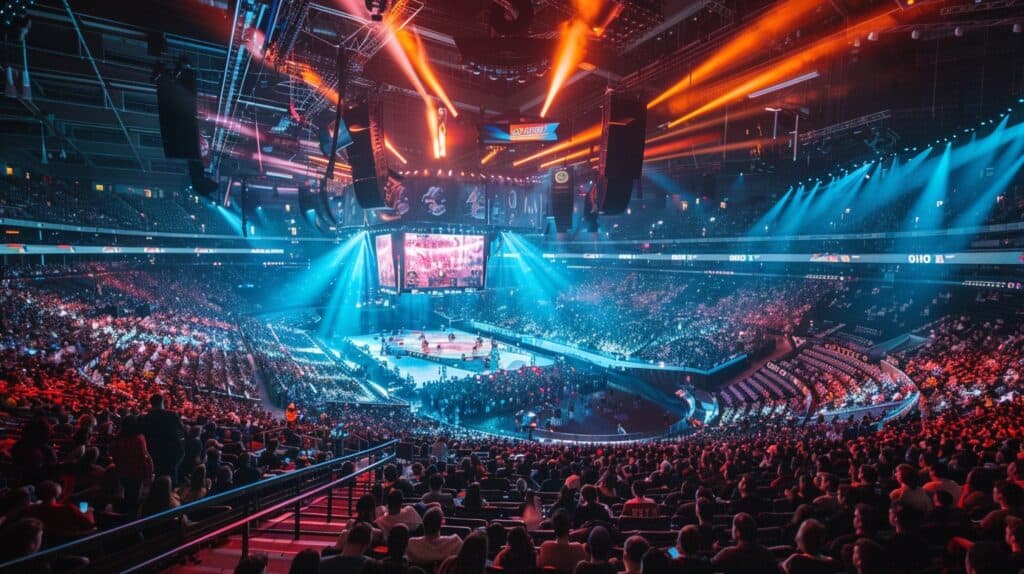
Recognition as a sport opens many doors for esports. It means more support from big organizations like the NCAA and respect from sports fans. This step also helps in fighting stereotypes about gamers being just lazy or antisocial.
Instead, it shows the world that esports players are athletes who train hard and compete with all their might.
The global fan base of 215.2 million in 2020, set to hit 322.7 million by 2025, proves esports is not just a trend.
With official sport status, women gain more opportunities in competitive gaming through initiatives like Title IX. This change brings gender equality into focus within the gaming scene.
Plus, recognizing esports as a sport encourages schools to offer programs and scholarships, making gaming careers accessible to more people.
Leading Video Games in the Esports Arena
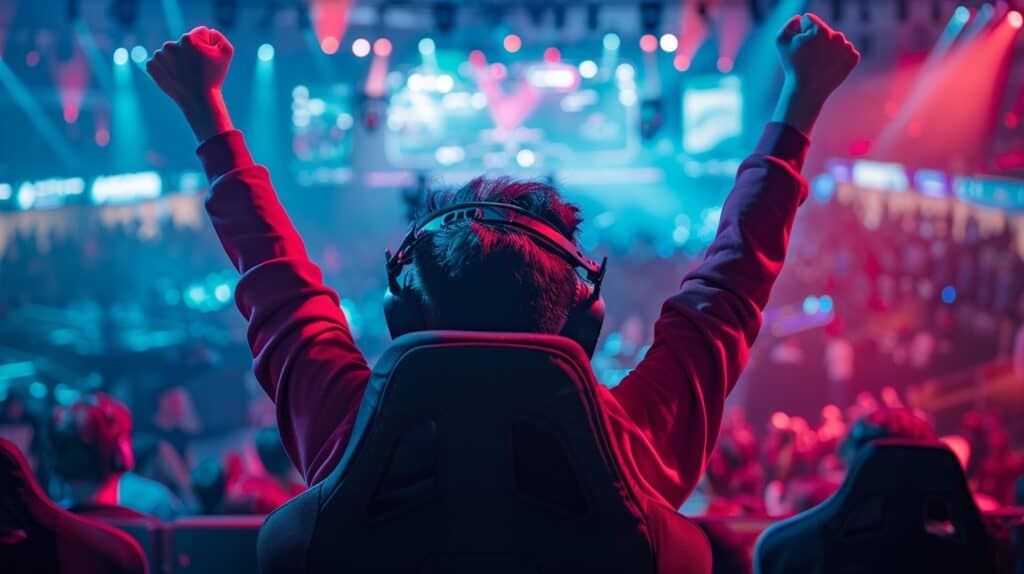
Esports thrives on intense competition and skill, much like traditional sports. The games listed below are at the forefront of this dynamic field, drawing millions of fans worldwide.
- League of Legends – This multiplayer online battle game has teams battling to destroy the enemy’s base. It’s famous for its strategic depth and vibrant community.
- Dota 2 – Another team strategy game where players control powerful characters to take down the opposing side’s structures. It boasts one of the biggest prize pools in esports history.
- Counter-Strike: Global Offensive (CS: GO) – A first-person shooter that tests reflexes and tactical thinking. Teams play as terrorists or counter-terrorists with goals like planting bombs or rescuing hostages.
- Fortnite – Known for its battle royale mode, where 100 players fight until only one stands. Its colorful world and building mechanics add unique twists.
- Overwatch – This game blends first-person shooting with team-based objectives, all within a brightly animated universe. Each character offers different skills and roles.
- Call of Duty: Modern Warfare/Warzone – Offers classic first-person shooter action with a modern warfare twist and a popular battle royale mode.
- Hearthstone – A digital card game that’s easy to learn but hard to master, requiring clever strategies to outsmart opponents.
- Rocket League – Soccer meets driving in this fast-paced sport, where players control cars to score goals against their opponents.
- PlayerUnknown’s Battlegrounds (PUBG) – Another hit in the battle royale genre, it drops players onto an island to scavenge for weapons and fight to be the last person standing.
- Rainbow Six Siege – Focuses on close-quarters combat and tactical gameplay, where planning and teamwork are key to victory.
From personal experience playing these games, each demands quick thinking, coordination, strategy, and teamwork—traits found in traditional sports athletes too. These games not only entertain but challenge players in ways that deserve recognition on par with physical sports.
Esports’ Global Footprint
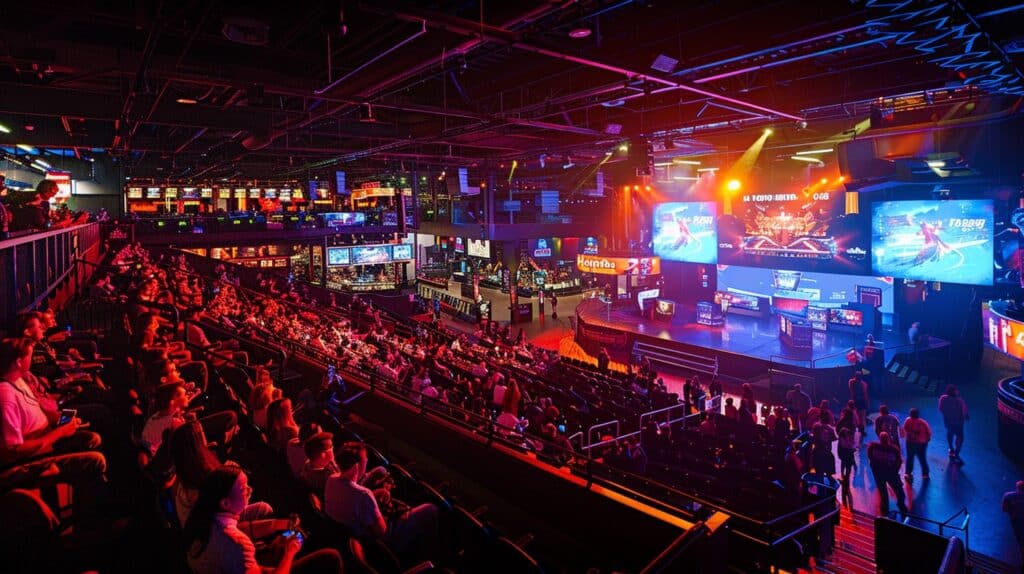
Esports fans are everywhere, with numbers hitting 215.2 million globally in 2020. By 2025, this will jump to 322.7 million. Countries like South Korea, the US, and Germany now see esports as a real sport.
This shows how big esports has become around the world.
I’ve seen this growth first-hand at international tournaments. Here, players from every corner of the globe come together to compete. The energy is electric. Fans cheer for their favorite teams, proving that video games have moved beyond just a hobby; they’re a global phenomenon, connecting people across different cultures and backgrounds.
Plus, more women over 18 are playing these games than boys under 18—a sign that gaming is for everyone.
Esports as a Career Path
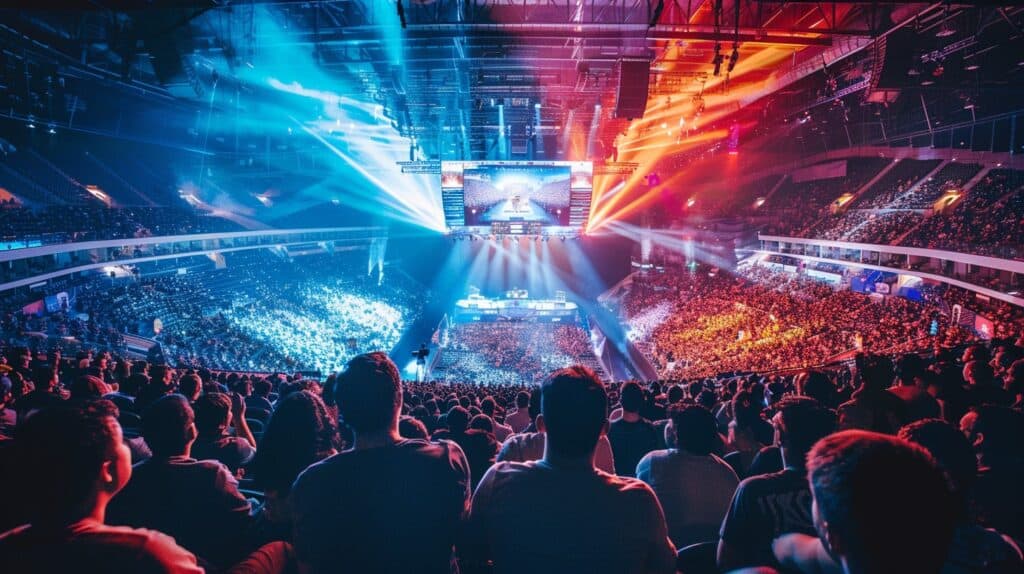
Pro gamers move fast, hitting up to 400 actions every minute. Their skills shine in games where quick-thinking and sharp movements matter most. Colleges like RMU get it—they offer big scholarships, nearly half a million dollars, for esports stars.
This isn’t just play; it’s serious business with real money on the line.
Esports opens doors—play your game, score college funds.
Leagues at colleges across the country mean more than fun. They are stepping stones to pro careers in gaming and beyond. The Collegiate Starleague stands out by covering eight leagues and three divisions, proof that esports is no small scene.
It’s clear: Gaming as a career? Absolutely achievable.
FAQs About Whether Esports Should Be Considered a Sport
What makes esports a real sport?
Just like baseball or basketball, esports requires teamwork, strategy, and quick thinking. Players show physical exertion through fast fingers and hands movement… Plus, mental health gets a workout too.
Can playing video games be good for you?
Yes! Esports can improve attention, executive function, and even social skills. It’s not just about the game; it’s about solving problems and working with others.
Why do some people think esports players are nerdy or antisocial?
Old stereotypes die hard… But today’s gamers are often part of a huge community—online and off—that values skill, strategy, and cooperation.
How does esports fit into schools or college athletics?
With organizations like the NCAA recognizing its value, esports opens doors for scholarships… And yes—Title IX applies here too! It’s all about teamwork and competition.
Are there careers in esports outside of being a player?
Absolutely! From content creators to sports psychologists focusing on gamers’ mental health—esports is booming with opportunities in STEM fields and beyond.
Does playing violent video games make gamers aggressive?
Research says no clear link exists between gaming aggression in real life… In fact, many players use games to manage feelings like anger or depression positively.
